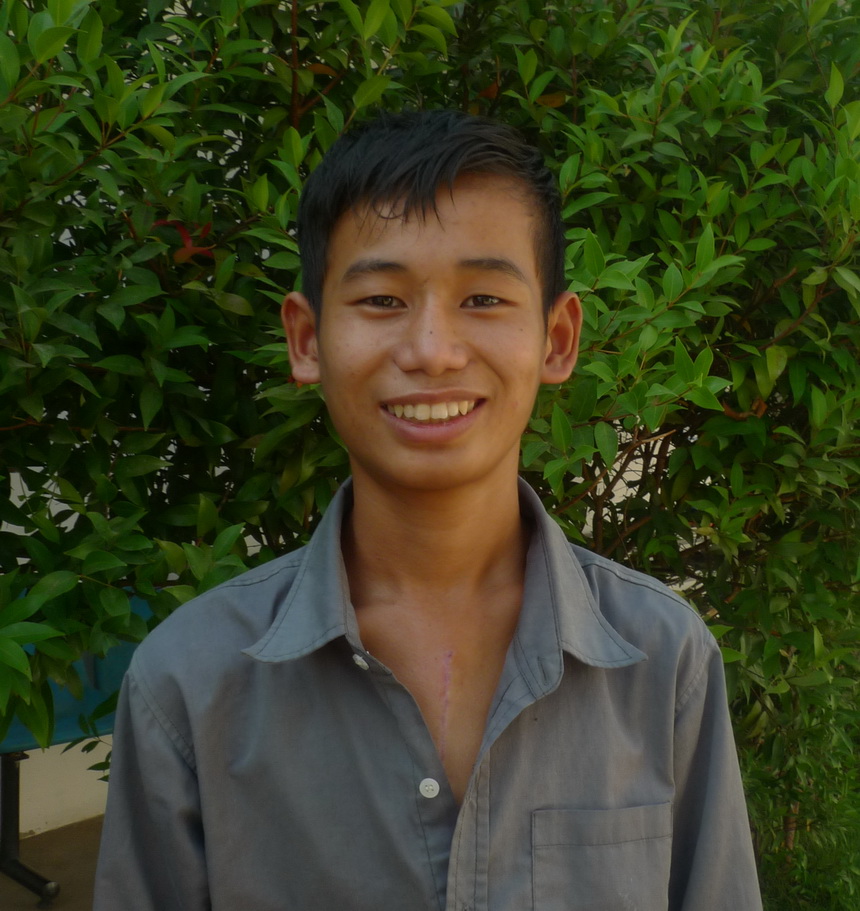Senetoo (Cardiac)
October 21, 2020 • Posted in BCMF Success stories
Senetoo (15) is a grade eight student. He lives with his parents, an older brother, a younger sister and two younger brothers in a refugee camp in Tak Province, Thailand. When he was two years old, fighting broke out between two arms forces close to his village. His father was arrested by the Burmese army, which put his whole family in danger. Right after his father was released, they fled to the refugee camp in 2006, where they have lived since.
Senetoo and his siblings all attend school in the camp, except his oldest brother who studies in a migrant school. His parents sometimes sneak out of the camp to find work as day labourers, receiving each around 150 baht (approx. 5 USD) per day. However, because they are officially not allowed to leave the camp for work, they are only able to earn 5,000 baht (approx. 167 USD) in a year. Senetoo’s household receives rations from the camp, but the amount they receive has slowly started to decrease. They must now manage their food carefully so that they will not go hungry at the end of each month.
SYMPTOM AND HOPE
In February 2018, Senetoo fell sick with a high fever and had rapid shallow breathing. At that time, he was studying outside of the camp in a migrant school in Mae Ramat, Thailand. His mother took him to Mae Ramat Hospital, and he was admitted for 15 days. While admitted, his fever broke but his breathing was still rapid and shallow. He also complained about feeling exhausted. The doctor listened to Senetoo’s heartbeat with a stethoscope and informed his mother that he has a problem with his heart. Because the hospital was unable to help him further, Senetoo was referred to Mae Sot Hospital (MSH) in late February 2018. At MSH, Senetoo underwent diagnostic tests and was sent home with medications. He came back on 7 March 2018 for an echocardiogram (echo). He was not told about his echo result and was given multiple medications. He then returned for monthly follow-up appointments for the next six months. One day, Senetoo’s father met a staff member of Partners Relief and Development Organization (PRDO) and asked if they could help his son receive treatment. The staff member said they would try to help Seneteoo. In early October 2018, Senetoo returned to MSH for his appointment. The doctor informed him that he has a hole in his heart, and he would need surgery to close the hole. Luckily, the staff from PRDO then referred Senetoo to Burma Children Medical Fund (BCMF) for assistance accessing treatment.
GETTING HELP
Accompanied by his father, BCMF brought Senetoo to Chiang Mai. During his first appointment at Chiang Mai Hospital on 15 November 2018, he received another echo and an x-ray; the result confirmed that he has a hole in his heart, a condition called atrial septal defect. Through a translator, the doctor told Senetoo about his diagnosis and how they would close it during surgery. When Senetoo returned to CMH for his next appointment on 24 February 2019, he was admitted for surgery. Two days later, the surgeons operate on him and on 1 March 2019 he was discharged.
According to Senetoo’s father their stay at the hospital was good, and they did not face any problems. When a translator was not available to help, they communicated with the doctor through gestures and through some of the Thai Senetoo understands. The only problem they had was with the food they received. “The food at the hospital was too sweet for me and I did not like it,” said Senetoo. “I really missed the food from my home and my father said the same thing.”
ROAD to RECOVERY
Since his surgery, Senetoo’s health has significantly improved. He no longer has difficulty breathing nor is his breathing rapid and shallow, even when he is active. He feels like he can play with others now and start helping with household chores. After he returns home, he believes that he will be able to resume his studies when schools reopen after the holidays. He said, “I missed my classes because I had to go to my follow-up appointments. Now, with my surgery done, I hope I can study without interruption.”
Both Senetoo and his father are grateful for the help that they had received. His father is very thankful to the organisations, and the donors for helping his son. He said, “We could never afford to pay for surgery as we are from a refugee camp. Our daily life is a struggle and without help from the organisations and their donors, my son would not have undergone surgery. Thank you very much for your support. I want my son to grow up and become an educated person and help others [in his community] as much as he can. We cannot live alone in this world. He received help from others, and he should help others when he grows up.”


